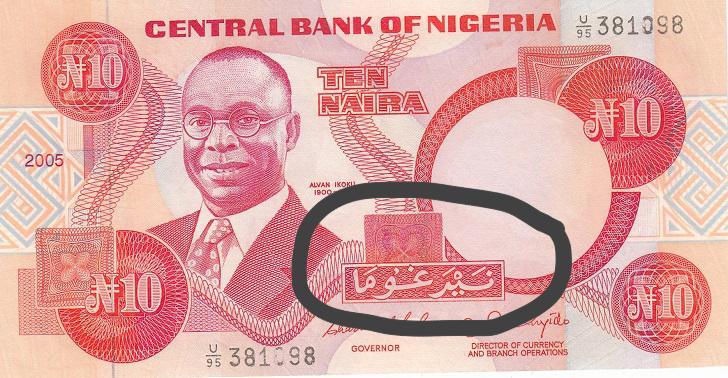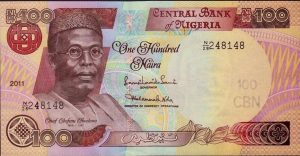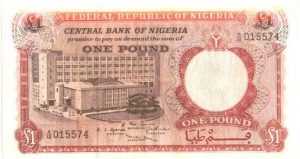5 Reasons Why Arabic Script Should Not be Removed from Nigeria’s Currency

Nigeria’s federal government is currently in court fighting a lawsuit filed by Malcolm Omirhobo, a Lagos based lawyer, seeking the removal of Arabic scripts from the country’s Naira banknotes because they “represent Islam”.
This has generated a lot of controversies and is being debated in religious and political contexts.
Here are five reasons why the Arabic script should not be removed from Nigeria’s banknotes.
It’s actually not Arabic
The proper term for this Arabic script is Ajami. It is an Arabic-derived African writing system.
Long before the Europeans arrived in Africa, Africans would often transcribe their spoken languages into Arabic scripts. These forms of writing were used to preserve business records, tax records, and important historical events.
The Arabic script on the Naira banknotes is actually the Hausa language written in Arabic letters.
It will cost a lot of money to replace
One of the arguments being put forward by the Central Bank of Nigeria (CBN) against the lawsuit is that it would cost a huge amount of money to discard the existing notes and print new ones without Arabic inscription.

Currently, there is Ajami script on N1,000, N500, and N200 banknotes. Replacing all these would cost billions in taxpayer money. The logistics of distribution, the design of new notes, all these would cost money that can be used in other sectors.
Nigeria’s history
The funny thing is, it was the colonialists who first put Ajami script on Nigeria’s currency as far back as 1945.

In pre-colonial Nigeria, the northern Hausa people took up Arabic writing, a product of their trans-Sahara trade with the Arabs.
A typical northerner can read Ajami even if they do not understand the Latin script that is used in English.
The northern part of Nigeria did not embrace Western-style education early, and there is still some resistance to it in many parts till today.
But most northerners are versed In Ajami, having undergone Arabic-based qur’anic education.
Read More: 5 Interesting Facts About Akon’s $6 Billion Futuristic City
Nigeria is not a monolith
One of the arguments of the plaintiff in the lawsuit is that he did not understand what the Arabic script on the naira note means.
Nigeria is a country of over 200 million people. More than 80 different languages are spoken by Nigerians. The scale of Nigeria’s diversity is enormous, and only through mutual respect and understanding can the people live together in peace and harmony.
Arabic is not equal to Islam
The argument against the Ajami script on the Naira Note is that it violates sections 10 and 55 of the Constitution of the Federal Republic of Nigeria.
Section 10 of the 1999 constitution reads
The government of the federation or of a state shall not adopt any religion as the state religion
The notion is that Arabic and Islam are the same, and this has led to accusations that the Arabic writing on the Naira note connotes religion and promotes Islamisation.
Arabic is just a language of communication just like the Latin scripts we use in English. We must understand that Arabic does not mean Islam and Latin does not mean Christian.
